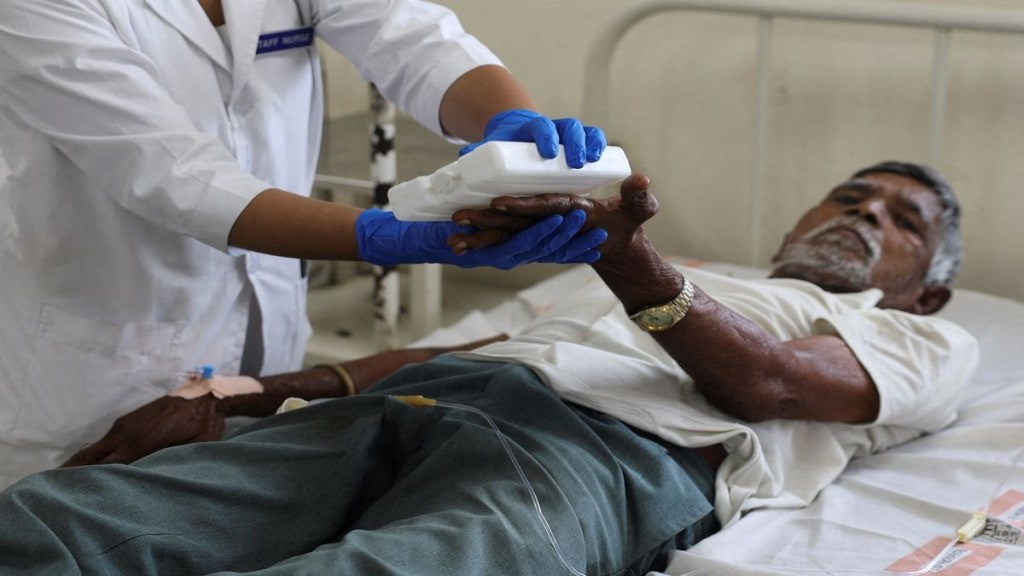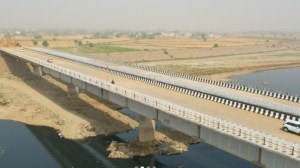Heatwave in India: As India continues to reel under scorching heat, the rising temperature is taking a toll on lives of people. On Sunday, Rajasthan’s Phalodi touched 50 degrees Celsius in the last 24 hours. According to the India Meteorological Department (IMD), the severe heatwave will continue for the next two to three days.
On Saturday, the residents of the National Capital went out to vote amid the soaring temperature. The mercury touched 46.9 degrees Celsius, almost 7 degrees above normal. Meanwhile, a red alert has been issued in the city for the next four days as the mercury is likely to surge in the days to come. Between May 24 to May 28, the Met Office has also predicted warm night conditions over Rajasthan, Delhi, Punjab, Haryana, and Chandigarh.
The IMD has issued a red alert for Rajasthan, Punjab, Haryana, Delhi, and Uttar Pradesh, predicting severe heatwave conditions in these areas. Additionally, the IMD has issued an orange alert for Madhya Pradesh, Maharashtra, and Gujarat, indicating slightly less severe but still dangerous heatwave conditions.
Rise in heat-related illnesses and deaths
As the temperature continues to rise, there is an increase in cases of heat-related complications and deaths. India has so far recorded 60 heat-related deaths. According to a report by Live Mint, citing government data, since 1 March, 32 people have died due to heatstroke and 28 from suspected heatstroke, with the latest two suspected deaths reported in Andhra Pradesh and Rajasthan’s Kota on 22 May.
According to the data, the country has seen 16,344 suspected heatstroke cases since 1 March this year, with 486 suspected heatstroke cases on 22 May alone.
On Friday, six deaths due to suspected heat stroke were reported in Rajasthan, where temperatures soared to 49 degrees Celsius. According to the state’s Disaster Management and Relief Department, three people died in Balotra, and one each in Bhilwara, Bikaner, and Jodhpur.
Amid the rise in cases of heat-related complications continue to rise, hospitals are witnessing an increase in footfall of such cases. According to Dr Atul Gogia, Senior Consultant, Department of Internal Medicine, Sir Ganga Ram Hospital, Delhi, hospitals are seeing patients with heat-related illnesses.
“This includes issues like high body temperature, Dehydration nausea and vomiting, and dullness while indirect ones are illnesses due to water-borne illnesses because of intake of contaminated water to cut down on heat-related dehydration. The cases are increasing due to the heat wave but so far not alarming in the capital city due to access to cooling, water and awareness. However the hospital and the staff are geared adequately to handle such cases without much ado. So the message is to keep one adequately hydrated and avoid direct heat contact as far as possible,” Dr. Gogia told Financial Express.com.
He also informed there is an increase of 15 to 20 percent of heat-related patients coming in OPD and about 10 percent in the emergency department. The hospital has made sufficient arrangements for these patients, especially in emergency for Heat Stroke patients, he claimed.
Moreover, the Delhi government has asked hospitals to initiate a heat-relief action plan and ensure preparedness to deal with Heat Related Incidents (HRIs). In an order issued by the health department, the government has directed that health facilities must maintain a database of patients coming in with heat-related illnesses in the emergency and the associated mortality for surveillance. According to the order, the government has specified infrastructural changes, procurement of tools, medicines and designated space for the management of HRI patients.
“Prevent heat-ralated illnesses through provision of ORS (Oral Rehydration Solution) packs, essential medicines, IV fluids, ice packs, and equipment to support and management of volume depletion and electrolyte imbalance, etc,” the order read.
Meanwhile, no respite from the sweltering heat is in sight in Gujarat. On Friday, the IMD issued a red alert for Ahmedabad and Gandhinagar. This is also the longest heatwave spell for Gujarat in May. Meanwhile, in the last three days, four persons are suspected to have died due to the heatwave in Vadodara. The hospitals are implementing protocols to manage heat-related cases.
“We are thoroughly prepared for heatwave management at Bhailal Amin General Hospital’s emergency department, as we are always prepared for adapting to any of the climate changes or any disaster with our extra disaster supply. While foreseeing any climate issues, like this heat wave – we ensure adequate staffing, stockpiling and rechecking of our emergency supplies such as cooled IV fluids and cooling ice packs, cooling blankets and conduct staff training on recognizing and treating heat-related illnesses specifically for these heat waves,” Dr Kesha Mankad, Consultant and Incharge – Emergency Physician, Bhailal Amin General Hospital, Vadodara told Financial Express.com.
Dr. Mankad also informed that the hospital has established protocols for triaging and prioritizing patients during heatwaves and is equipped to handle such patients on a priority basis.
“The best treatment is good and fast hydration for heat stroke, the doctors and staff at our Emergency Department ensure these protocols are maintained for all the patients. We have taken measures to educate our staff and team to recognize the early symptoms of heat stroke such as headache, uneasiness, nausea, vomiting, decreased urine output, excessive perspiration etc. The earlier the recognition the faster treatment can be started for such patients, thereby avoiding severe neurological symptoms and further morbidity,” he revealed.
Additionally, we also try to raise awareness about heatwave safety measures and encourage early intervention for those experiencing heat strokes, he said.
‘Beds allocated for patients of heat-related illnesses’
The severe heatwave in Maharashtra has made the everyday lives of people unbearable. After Akola became the hottest city in Maharashtra, with temperatures exceeding 45 degrees Celsius, District Collector Ajit Kumbhar enforced Section 144 of the Criminal Procedure Code (CrPC) until May 31 due to potential heatwave conditions. Meanwhile, Pune is set to witness severe heatwave after a few days of stormy pre-monsoon showers, IMD predicted.
“We have trained doctors and supporting staff with protocols to identify symptoms of heatwave-impacted patients. Along with this, we are exercising awareness drives among patients and common people pertaining to dos and don’ts during the heatwave. We have set a certain number of beds to address emergency patients. Our emergency team is fully equipped to address and treat all kind of medical emergencies arising out of heatwave impact,” Dr. Digvijay Adke, Consultant and In-charge ER Department, DPU Super Speciality Hospital Pimpri, Pune told Financial Express.com.
We have special arrangements in place for ice packs and cold saline and we have specially arranged provision for ice baths in case of severely affected patients, he said.
Meanwhile, the hospitals in Mumbai are taking proactive measures to deal with heat-related cases as temperatures soar. “Special arrangements and protocols are being implemented to ensure the safety and well-being of patients. This includes increasing the availability of cool areas within hospitals, providing hydration stations, and educating staff on the signs and symptoms of heat-related illnesses. Additionally, hospitals are emphasizing the importance of preventive measures such as staying hydrated, avoiding direct sunlight during peak hours, and wearing lightweight, breathable clothing,” Dr. Anupama Sardana, General & Critical Care Physician, Holy Family Hospital, Mumbai told Financial Express.com.
The current footfall of heat-related cases in Mumbai hospitals varies depending on the severity of the heatwave and the type of people affected in terms of age, gender and socioeconomic strata, Dr. Sardana informed.
“During peak heatwaves, hospitals may experience a surge in patients presenting with symptoms such as heat exhaustion, heatstroke, dehydration, and exacerbation of pre-existing medical conditions. Emergency departments are particularly busy during these times, requiring hospitals to allocate additional resources and staff to manage the influx of patients,” she told Financial Express.com.
Overall, hospitals in Mumbai are working diligently to address the challenges posed by rising temperatures and are committed to providing timely and effective care to those affected by heat-related illnesses, she said.







